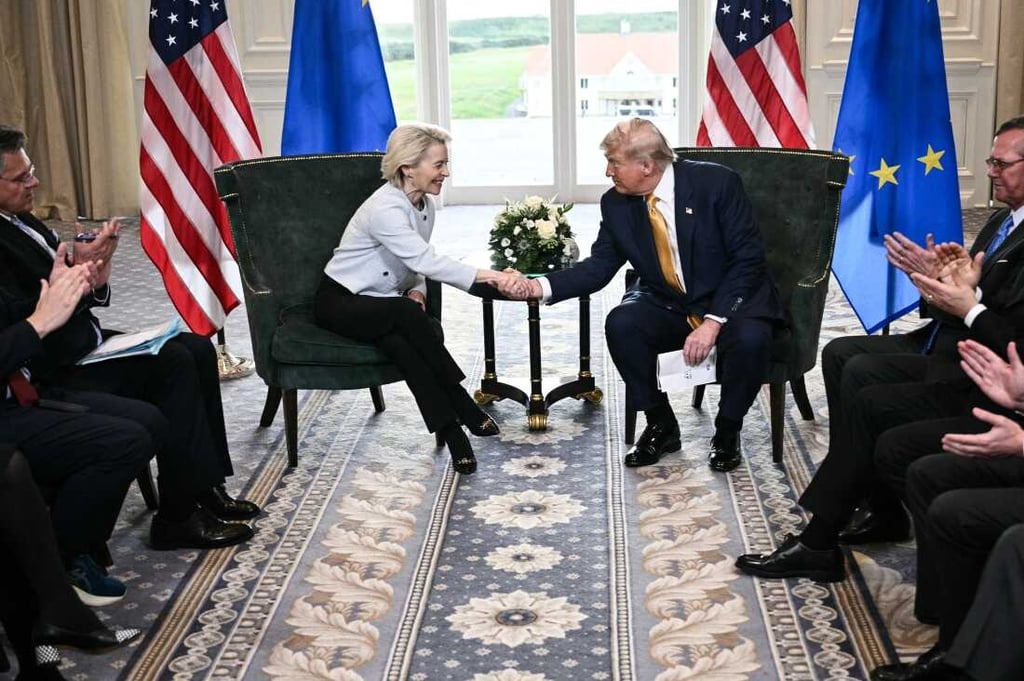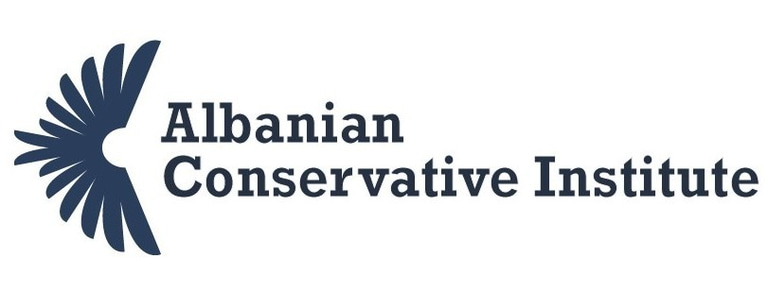A Historic Deal That Reshapes the West: The EU and US Unite Economies and the Future
In an increasingly fragmented world, where geopolitical tensions, economic uncertainty, and technological shifts happen at breakneck speed, the newly signed agreement between the European Union and the United States represents a historic development.
Enri Çeno
7/28/20254 min read


In an increasingly fragmented world, where geopolitical tensions, economic uncertainty, and technological shifts happen at breakneck speed, the newly signed agreement between the European Union and the United States represents a historic development. This is not just a deal about tariffs or trade facilitation, it is a strategic act that redefines the transatlantic axis and positions the West as a united force in the face of 21st-century challenges.
The Economy: The Engine That Unites
On the economic front, the agreement eliminates numerous tariff and non-tariff barriers that have hindered the free flow of goods and services between the world’s two largest democratic economies for decades. The removal of these barriers will unlock the potential of hundreds of billions of euros in two-way trade each year, significantly boosting exports for both sides.
For the U.S., this means a direct increase in industrial, agricultural, and energy exports to a high-standard, high-consumption market. American companies will gain easier access to strategic European sectors like automotive, clean tech, pharmaceuticals, and digital industries. The ripple effect: increased investment, job creation, innovation stimulation, and a sustained boost for the U.S. economy.
Europe, in return, will not only strengthen its foothold in the American market but also benefit from growing U.S. investment across the continent. The deepened economic integration will also solidify transatlantic supply chain, a lesson painfully learned during the pandemic and recent global crises.
Security: Defense Is No Longer Just About Tanks
Often overlooked in trade discussions is the question of security. But in this case, security stands as a pillar of the agreement. By fostering deeper economic and technological interdependence, the EU and the U.S. are building a new shield against external threats, not through military arsenals, but through contracts and code.
Europe’s dependency on Russian energy has proven to be a major vulnerability. With this new agreement, the EU gains guaranteed access to U.S. natural gas and other strategic energy sources, helping to accelerate its energy independence from Moscow—independence that not only strengthens Europe’s geopolitical autonomy but also secures its eastern flank.
Cybersecurity also takes center stage. With expanded cooperation in AI and technology, the EU and U.S. are in a position to develop common defense protocols against cyberattacks, election interference, and disinformation campaigns—modern hybrid warfare tactics actively used by authoritarian actors like Russia, China, and Iran.
Artificial Intelligence: The Next Industrial Frontier
Perhaps the most strategic dimension of the agreement is the shared development of Artificial Intelligence (AI), now widely regarded as the next industrial revolution and a transformative force for society. For the first time in modern history, a revolution of this scale is unfolding outside of Europe—in the United States and parts of Asia.
Europe, shackled by overregulation and bureaucratic hesitation, has fallen behind. If it had failed to act now, it risked missing the future altogether—relegated to the role of a passive market for foreign technologies.
This agreement marks a dramatic shift: the EU will now integrate into the AI ecosystem through joint platforms, academic exchanges, co-investment in research, and aligned standards. Europeans will no longer be mere users of emerging technologies, but co-creators of them. Most importantly, the ethical and legal frameworks guiding AI development will now be shaped with strong Western democratic values at the center.
Geopolitics: The West Returns to the Global Stage
In recent years, there’s been growing talk about the “end of the West” as a strategic force. The rise of China, Russian aggression, and internal fragmentation within both the U.S. and the EU have sparked a crisis of confidence in the Western alliance. This agreement is a firm and well-calibrated response to those who prematurely declared the West obsolete.
For the United States, the deal offers a stable economic ally in Europe at a time when tensions with China are intensifying and supply chains need to be diversified away from Asia. For the EU, it is a chance to assert itself not only as a major market but as a global actor.
The agreement also presents a credible alternative to authoritarian models of regional influence—such as BRICS or China-led initiatives—and signals to the world that the West still has the capacity to unite, to lead, and to deliver meaningful cooperation.
Politics: Strategic Wisdom Beyond Partisan Lines
In an era when politics is dominated by polarization and tribalism, this agreement is a rare example of strategic wisdom that transcends short-term partisan wins in favor of long-term historical interest.
Former President Donald Trump, often criticized for his protectionist stance during his first term, has shown unexpected strategic flexibility by embracing this deal. He recognizes that in facing global challenges, America’s national interests are best served not in isolation, but in partnership with trusted allies.
In Europe, those leaders who pushed back against the rigid inertia of Brussels bureaucracy deserve recognition. They understood that passive technocracy is no longer an option in a world moving at unprecedented speed.
Looking Ahead: Toward a New Western Partnership
This agreement is only the beginning. It lays the groundwork for permanent frameworks of transatlantic cooperation: a Transatlantic Economic Council, shared technology development platforms, and perhaps even a “common digital zone” where privacy, AI, and data standards are harmonized.
Together, these elements could one day form what might be called the New Western Union—not a political superstructure, but an organic, powerful partnership between the world’s leading democracies.
A Visionary Act, A Bet on History
Ultimately, this agreement is not just about tariffs, trade, or technology. It is about a choice—a choice to stand together, to shoulder the burden of leadership, to synchronize responses to crises, and to build a shared future where democracy, freedom, and innovation are not just ideals, but the foundation of global order.
For a Wiser, Stronger, United West. Because history is not only written by those who protest, but also by those who build.
Çeno is a co-founder of ACI, board member, director of the International Law and Liberty Society Albania, entrepreneur, and Secretary for Foreign Relations at the Democratic Party.
